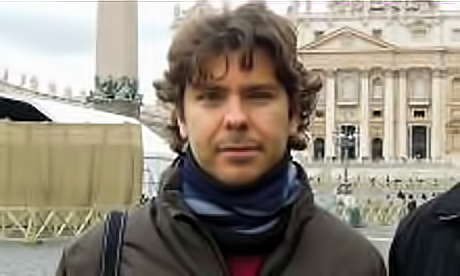Vatican watchers and even cardinals have been anxious to see how effective Pope Francis will be in tackling much-needed Curia reforms, and on Saturday he made what might be the single most important appointment in his tenure – and one that gives every sign that the Argentinian pontiff means business when he talks about change.
Archbishop Pietro Parolin on Saturday was named the new Vatican secretary of state, usually described as the Holy See’s ‘prime minister’.
He brings to the job substantial experience in the Holy See’s diplomatic corps, among the world’s most ancient and respected, and considerable familiarity with the challenges facing the Church in Asia – currently the Church’s most fertile soil.
Popes generally choose their right-hand men from within their ranks but Benedict XVI decided to break with tradition in 2007 when he turned to his long-time trusted aide, Cardinal Tarcisio Bertone, for the job.
With no diplomatic and little administrative experience, Bertone – a theologian by profession – had little background for the position of secretary of state.
The jovial but sometimes bumbling Bertone was partly blamed, especially by the media, for the many mishaps that plagued Benedict’s pontificate, with its scandal-prone and inefficient Curia that drew criticism from many cardinals during the meetings that preceded the 2013 Conclave.
In this respect, the arrival of Parolin – a seasoned hand at the Secretariat of State known for his discretion and pragmatism – should help address the problems in the spirit set out by Francis.
Already in his first statement since his appointment, the Italian archbishop put in the forefront the values of service and humility – those that Francis has often said should be the hallmark of those who enjoy leadership positions within the Church.
“I feel very strongly the grace of this call, which is yet another and the latest of God’s surprises in my life,” Parolin wrote.
“Above all, I feel the full weight of the responsibility placed upon me: this call entrusts to me a difficult and challenging mission, before which my powers are weak and my abilities poor.”
But the role of Secretary of State does not simply serve as ‘chief of staff’ to the pope. The position also entails coordinating the world’s smallest state’s relations with the rest of the world as well as with the Church’s thousands of bishops.
As a career Vatican diplomat, Parolin served in the past in Africa and Latin America, and right now – until October 15 when he will take up his new office – he is the Vatican’s ambassador to Venezuela.
But when he was Undersecretary for Relations with States (until 2009) – basically the Vatican deputy foreign minister – he oversaw some of the Church’s most delicate international briefs. And he garnered some substantial Asia expertise, traveling all around the continent, from Pyongyang to Jakarta.
He orchestrated the Vatican’s gradual rapprochement with Communist Vietnam, which eventually led in 2011 to the reestablishment of diplomatic ties that had been severed 40 years earlier when Ho Chi Minh’s troops conquered Saigon.
Under Benedict, he also oversaw the German pope’s attempt to thaw the Vatican’s relations with China and Vietnam. The attempt with China was spearheaded by the pontiff’s Letter to Chinese Catholics of 2007 but wasn’t successful in stopping Beijing’s government practice of forcing bishop appointments without papal consent.
When Parolin was appointed to the Caracas nuntiature and made an archbishop in 2009, some Vatican watchers described the move as a condemnation of Parolin’s pragmatic approach, characterized as at odds with Benedict’s style of focusing on preaching the truth rather than on subtle diplomacy.
Whether this characterization is correct remains to be seen.
What seems more certain, however, is that as a professional diplomat, Parolin will bring to the job a nuanced and realistic knowledge of the world, where the mark of a strong faith is not seen as a pretext for diplomatic grandstanding.
And looking at his past experience, the new Secretary of State will possibly make the world’s largest continent and fastest growing region for the Church a more pressing priority in the Vatican’s agenda.
Alessandro Speciale is a freelance journalist based in Rome
First published in ucanews.com
